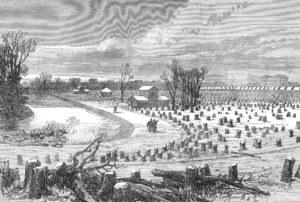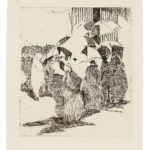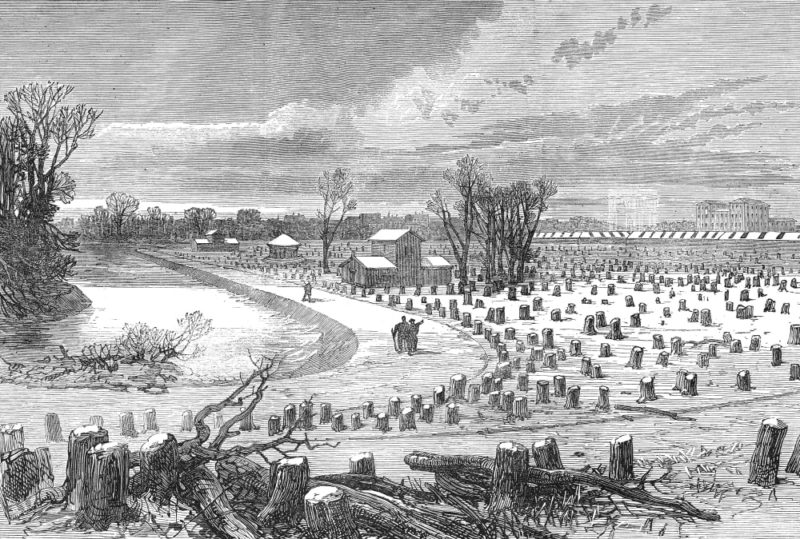Every writer wants to inhabit her protagonist in order to understand and write from her point of view. I already identified with aspects of Berthe Morisot’s life when I wrote La Luministe: her issues with her family, her desire to create, her reluctance to marry. But never could I have imagined that I would understand something about what it was like for her to live through the Siege of Paris.

Here we are, well into our second trimester of the Covid 19 pandemic. We’re tired of not being able to socialize as much as we’d like to and tired of being unable to find anything we want at the supermarket as we’re used to doing. Like Berthe, I live a privileged life. My family hasn’t fallen ill, hasn’t lost our income, doesn’t have to wait hours in line for food banks, and we even have a back yard to escape to when working-at-home-togetherness gets to be too much.
Almost 150 years ago, Berthe Morisot went through a similar experience. In September of 1870, during the Franco-Prussian war, Germans put Paris under siege. Most friends of the Morisot family had already fled the City when war threatened, leaving Berthe and her parents isolated in their home. The earliest telephones were still in the future, and with no Zoom or other digital communication, the only recourse for Parisians to contact loved ones outside the city was to send mail via hot air balloons that took off from the top of Montmartre. This balloon corps also transported carrier pigeons to facilitate return mail. It seems unlikely that most of those pigeons returned, but that was the least of the letter-writers’ worries.
The point of a siege is to starve people out, and indeed food quickly became hard to come by. Those of us who can’t find yeast to make bread might keep in mind that Parisians were forced to replace their baguettes with a “bread” made of a horrible mix of straw and beans. People were eventually reduced to “Siege cuisine”, which included rat paté, horse hooves, and zoo animals that were sacrificed for the starving citizenry.

On top of everything, the Paris winter of 1871 was the coldest within memory. The ground froze to a foot deep. Parisians desperate for fuel chopped down all of the trees lining the City’s boulevards during wood riots and burned the forested Bois de Boulogne to make charcoal. I thought about that during chilly March evenings while watching Netflex from my comfy couch by the fireplace.
The two crises are not truly comparable. A pandemic is not a siege. One is an illness and the other is a war strategy. While the United States has lost over 120,00 lives to the Coronavirus, the city of Paris alone lost 50,000 citizens to starvation and hypothermia. And there was also a rampant illness, “siege fever”, which Berthe Morisot barely survived. She also suffered from digestive problems (small wonder, given what there was to eat), as well as an eye infection—possibly caused by the pollution from a nearby chemical plant—that left her temporarily blind. Not good for an artist! Treatments for these ailments were minimal. We, on the other hand, have hope for a vaccine that will protect us from the virus we’re fighting.
While our day-to-day struggles may not be as severe as the isolation, hunger, and cold that the nineteenth century French experienced, the constant fear of a cannonball falling into our lives is very much the same. Our boredom and annoyance cover the deep fear of catching the Coronavirus and finding ourselves or our loved ones on a ventilator. Attempting to live as normal a life as possible while keeping the feeling of impending doom at bay is exhausting.
Although the residual effects of the siege would leave Berthe Morisot in frail health for the rest of her life, she was able to plan and participate in the first Impressionist art exhibition in 1874. By then, Parisians had made great headway in rebuilding their city, The siege had ended.whereas our war with a pandemic may not be over for a very long time.
